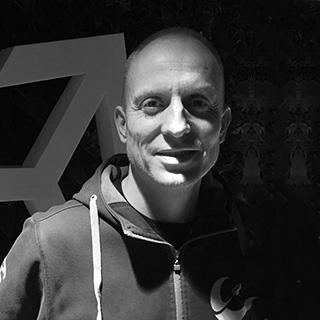DevOps Pro Europe 2020

March 24-26

Online
Confirmed Talks
Janos Pasztor
Freelancer, Austria
Talk #1
Do you manually test your containers? Do you not test at all? What if Janos were to tell you there is a better way? An easy, readable way? This talk will give you an introduction into behavior testing with Python and Gherkin, a very friendly, readable test description language, and it will guide you through creating a test environment for your containers.
Session Keywords
Talk #2
Kubernetes is a monster. Even the most experienced DevOps engineers say that they are unable to deploy Kubernetes without a tool. What if I told you there was a Kubernetes out there that’s easy to deploy? What if I told you this Kubernetes only required 512 MB of RAM to run? What if I told you that you could get it running five minutes after the talk?
Session Keywords
Kristian Azmanov
Endava, Bulgaria
The idea of the session is to demonstrate how easily we can set up a multi-environment, server-less architecture which is integrated into a CI/CD pipeline using only the Google Infrastructure (Google Cloud Functions and Google Cloud Build).
Session Keywords
Rasmus Selsmark
Unity Technologies, Denmark
Through automated builds and deployments, teams can develop and run their services in production, including taking ownership of the quality of their services. Our next step at Unity has been to integrate security tooling better into the deployment process, e.g. avoiding container vulnerability scanning happening days or weeks after the actual deployment took place.
Session Keywords
Ruslan Synytsky
Jelastic, Spain
Kubernetes enables a possibility to develop cloud native microservices or decompose traditional applications making them more technologically advanced with the help of containers. But there is always room for improving 3 Ps – Performance, Price and Provisioning. Currently, most of the Kubernetes solutions are offered on top of VMs that brings a set of limitations while scaling and extra complexity while maintaining the workloads.
Session Keywords
Leonard Sheng Sheng Lee
Computas, Norway
Tired of manually configuring Jenkins through its web interface? Fred not, Jenkins Configuration as Code project will make our work a bit easier. In this session, we will learn how to configure Jenkins by code and improve the maintenance process of Jenkins.
Session Keywords
Fabian Basciani
J.P. Morgan Asset Management, UK
To achieve continuous delivery pipelines in a DevOps environment you need automated testing for quality assurance of your software. Nonetheless, this is easier said than done. Especially, if you go beyond the usual unit testing and want to test the actual behaviour of your application.
Session Keywords
Mikhail Shilkov
Pulumi, The Netherlands
In this talk, Mikhail will demonstrate why writing infrastructure in general programming languages is a better way to is a better choice for infrastructure management. Pulumi is an open source tool that allows users to write their infrastructure code in TypeScript, Python, DotNet or Go.
Session Keywords
Peter Gribanov
1C, Russia
In 1C we produce tools & frameworks for rapid development of cross-platform business software. Our software runs on Windows, Linux, macOS, Android, iOS, uses RDBMS MS SQL, Oracle, IBM DB2, PostgreSQL.
Our software is used by 1.5M enterprises and 5M end users.
Session Keywords
Alex Ley
Pivotal (VMware), UK
Does your organization have hundreds or thousands of existing applications? Need to decide which to maintain and which to modernize? Is your current strategy “everything goes into a container”?
Come join this session to learn processes and practices that helped organizations adopt cloud native development practices to go beyond “just containerization”.
Session Keywords









